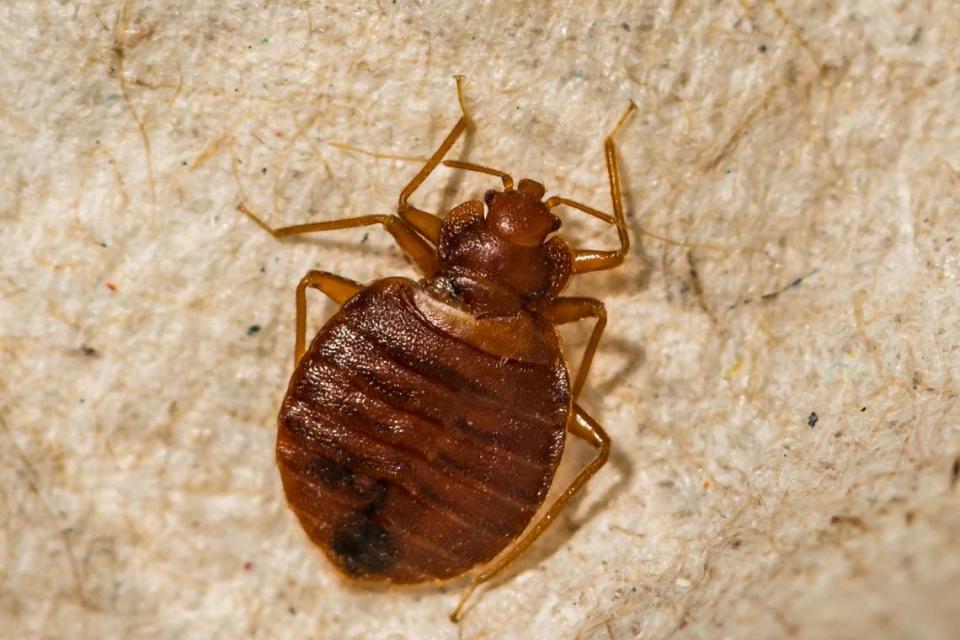Can bed bugs survive a cold Kentucky winter? Here’s what one expert says about activity
Is Kentucky a “hot spot” for bed bug activity? Online mattress retailer MattressNextDay recently looked at Google searches to determine the “worst U.S. states for bedbugs” and put the state among the top offenders.
According to the retailer, Kentucky ranks fifth in the list, published this month, with a high rate of bed bug searches at 3,529 per 10,000 people. Oklahoma topped the list with 4,114 per 10,000 people, followed by West Virginia and Ohio. Perhaps surprisingly, bigger states like New York and California ranked near the bottom, at 34th and 36th, respectively, according to the website.
So do search engine hits actually translate to bigger bed bug problems, as the website’s analysis suggests?
Dr. Zachary DeVries, a University of Kentucky entomologist who studies bed bugs as a research interest, is skeptical of these types of analyses. DeVries pointed out that online searches aren’t necessarily indicative of the scope of a state’s bedbug problem.
Additionally, having worked in multiple states, DeVries hasn’t observed Kentucky has a particularly aggressive bed bug population, at least not in his experience. According to the researcher, both big cities and small towns can have issues with the pests.
If you harbor concerns — or maybe you’re traveling soon — here’s what to know about bed bug activity in the winter.
Are bed bugs worse in the wintertime?
A bed bug wants to live in conditions where the temperature stays between 70 to 80 degrees Fahrenheit and there’s a convenient supply of food close by. As their name suggests, they tend to gravitate towards beds, sofas and other sleeping or resting areas, though they will go further afield for a moonlight blood meal if necessary.
Cooler temperatures and drier conditions, along with limited access to food, will stunt their development and activity, but it won’t stop it completely.
Bed bugs are resilient creatures. In cooler temperatures, 55 degrees or colder, their metabolism slows down and they conserve their energy.

Under these conditions, they can live up to a year without a meal, which is why it’s generally impractical to “starve out” a population. The bed bugs will simply disperse to other places searching for food or keep a low profile until the dwelling is reoccupied.
As DeVries puts it, “Bed bugs can survive and do well year-round.”
While some people might report increased bed bug activity in the winter, DeVries theorizes this is just a case of people noticing them more, combined with the fact there’s less activity from other biting pests that could be confused with bed bugs.
How do you prevent bed bugs in the first place?
DeVries says the best advice when it comes to bed bugs is “don’t get them in the first place,” and if you do get them, “you want to catch them early.”
This means staying vigilant, especially when you’re traveling.
According to DeVries, “it doesn’t hurt to take a look” just after you turn the key on your hotel room and before unpacking. Take five minutes to check the folds of the mattress, and if you find warning signs, such as blood smears, ask to change rooms or just stay somewhere else.
If you’re already dealing with a bed bug problem in your home, call a professional. This is one pest you can’t fight on your own with home remedies, DeVries said.
Do you have questions about Kentucky critters for our service journalism team? Let us know via the Know Your Kentucky form below or email us at [email protected].